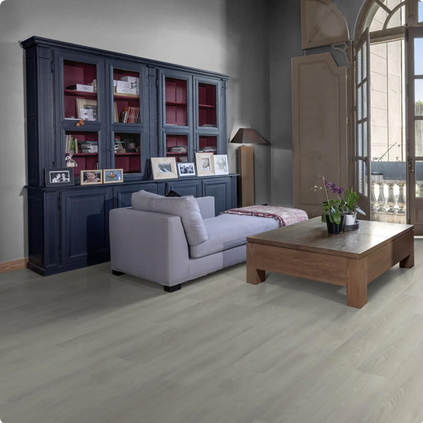
Author, Written by: P. Hirani (Wood flooring Expert)
Luxury Vinyl Plank, LVT/ LVP, has quickly become one of the most popular flooring options for UK homeowners. It combines the beauty of natural wood with the durability and practicality of modern materials, making it an excellent choice for both stylish interiors and busy households. If you are just starting to explore flooring options, this beginner’s guide will walk you through everything you need to know about LVP.
What Is a Luxury Vinyl Plank?
Luxury Vinyl/LVT Plank is a type of vinyl flooring designed to replicate the look of hardwood. It comes in plank shaped pieces that mimic the size, texture, and grain patterns of real timber. Unlike sheet vinyl, LVP feels more authentic underfoot, and unlike solid wood, it is designed to handle everyday wear and tear without the same level of maintenance.
Why Choose LVP?
There are plenty of reasons why LVP has become a go to choice for both modern and traditional homes:
-
Water Resistance: Most LVP products are waterproof, making them perfect for kitchens, bathrooms, and utility rooms.
-
Durability: Built with multiple protective layers, LVP resists scratches, dents, and stains better than natural wood.
-
Cost Effective: It offers the appearance of real wood at a fraction of the price.
-
Comfort: Softer underfoot than tile or stone, LVP also helps reduce noise.
-
Easy Maintenance: A quick sweep and occasional mop are usually enough to keep floors looking fresh.
Types of LVP Flooring
-
Glue Down LVP
Installed with adhesive, this type is ideal for larger spaces where stability is essential. -
Click Lock (Floating) LVP
Designed with interlocking edges, click LVP is one of the easiest options for DIY installation. It floats over the subfloor without glue. -
Rigid Core LVP
This type has a stronger core for added stability, making it ideal for high traffic areas and uneven subfloors.
Where Can You Use LVP?
Thanks to its durability and versatility, LVP works in almost every room of the home:
-
Living Rooms: Adds the warmth of wood without the maintenance.
-
Kitchens: With waterproof qualities, spills are no problem.
-
Bathrooms: A wood look floor that withstands moisture.
-
Hallways: Durable enough for heavy foot traffic.
-
Bedrooms: Comfortable, quiet, and stylish underfoot.
How Long Does LVP Last?
With proper care, LVP can last 15 to 25 years, depending on the product quality and thickness of the wear layer. Higher end brands often offer warranties that reflect this longevity.
Maintenance Tips for Beginners
-
Sweep or vacuum regularly to remove dirt and grit.
-
Use a damp mop with a gentle cleaner (avoid harsh chemicals).
-
Add felt pads under furniture to prevent scratches.
-
Place mats at entryways to reduce tracked in dirt.
Pros and Cons at a Glance
Pros:
-
Affordable compared to hardwood
-
Waterproof options available
-
Wide variety of designs and colours
-
Comfortable and quiet underfoot
Cons:
-
Can fade under prolonged direct sunlight
-
May not add as much value to a property as real wood
-
Lower quality products may dent more easily
Final Word
Luxury Viny/LVT Plank is an ideal choice for beginners exploring practical yet stylish flooring. It offers a blend of durability, affordability, and natural beauty, making it a strong contender for any home renovation project. Whether you are upgrading a single room or transforming your whole house, LVP is a flooring option that gives you the best of both worlds.
About Author:
Peter H. is a flooring product expert who knows all about different types of flooring materials. He shares his knowledge in blogs to help readers make the best choices for their spaces.
